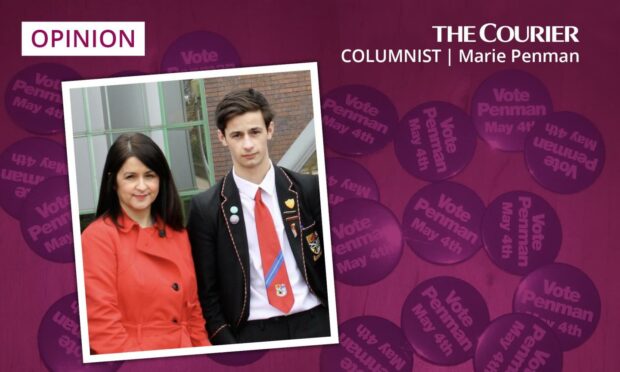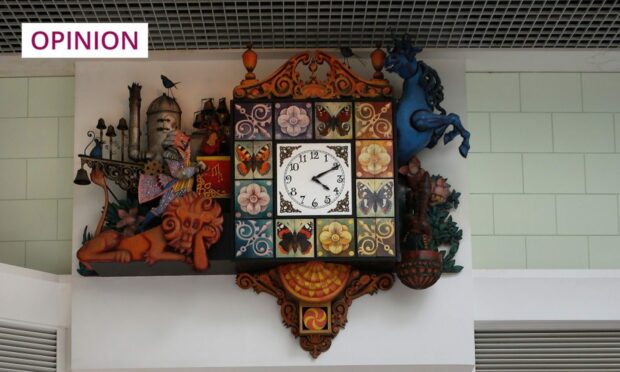It’s all happening these days, isn’t it?
And with so much else going on at a national and international level – foreign conflicts, faltering governments, floundering royals – you may have failed to notice we are now just two months away from the next local government elections.
They’re often seen as the boring member of the political family.
And maybe they do lack the late-night drama and excitement of their Westminster and Holyrood siblings.
But the Scottish council elections are actually the ballots that have the most impact on your day to day life.

Anyone over the age of 16, in all 32 regions in Scotland, can vote for the person they would like to represent them in their local area.
These elected officials then vote on the important stuff going on in your home town – schools, housing, roads, recycling, libraries, bins and more.
But how representative can we expect the candidates who are eventually proclaimed winners to be?
And in an increasingly (and pleasingly) more diverse Scotland, are we finally beginning to move away from the days when the vast majority of councillors were retired white men?
Well, yes and no.
Diversity in local democracy does not extend to young people
The good news is that this once male-dominated section of democracy now has a national average of 30% female councillors.
It’s an improvement. But it’s still not reflective of the population as a whole (women are actually in the majority here, with 51%).
An even smaller percentage of councillors are from disabled or ethnic minority backgrounds, which is also disappointing.
🗳️Register to vote!!🗳️
If you're aged 16 or over and live in Scotland, you can vote in the Scottish Council elections this May!
🗓️Make sure you register before the 18th of April – it only takes 5 minutes! #WelcomeToYourVote
Register here: https://t.co/dWcYn2orWF pic.twitter.com/GHkLWsXBE8
— Stewart Rooney MSYP (@stewartMSYP) February 24, 2022
But there’s another rarely-mentioned demographic that is also still seriously under-represented.
Because if our current crop of councillors have one thing in common, it’s mainly this – they’re from an older age bracket.
And that doesn’t reflect the people they represent.
What about the voices of young people?
In Fife, for example, where I live and where I once served as a councillor, the majority of the local population (according to the National Records of Scotland) is under the age of 45.
How many Fife councillors can say the same?
By my reckoning, it’s about 12%
There’s only one Fife councillor under the age of 30.
We’re talking about an area that has 18 secondary schools and thousands of teenagers.
Are their voices being heard at local government level?
Does anyone care what they think about education, parks and libraries (which they’re probably more interested in than the councillors who haven’t set foot in a school in decades)?
Young people are rarely considered as potential politicians because they apparently lack the “life experience” for local democracy.
Yet who decides what experience matters? Surely everything counts.
And let’s face it, older doesn’t always mean wiser.
I’ve met many teenagers who were noticeably smarter and more empathetic than their elders.
Some current councillors aren’t all they’re cracked up to be
During my time as a councillor, I worked alongside some very decent people.
But I also saw people who were in it for their egos, their careers or their pensions.
Some had simply been given the chance to stand for election by their political parties as a reward for all the leaflets they’d delivered for the local MSPs.
Shortly after I was elected, a fellow councillor congratulated me and then confided that he loved the fact that everyone had to address him as “Councillor”, and that he got so much more attention these days.
In all honesty, that was the part of the job that made me most uncomfortable.
As for the rest of it, I saw councillors who arrived at committee meetings without having read the briefing notes.
There were others who scrolled through social media and shopping sites during debates.
Some only turned up at community events to get their pictures in the paper, leaving as soon as the local press photographers did.
So who’s to say young people would be any worse?
Young people may be tailor made for local democracy
My enthusiasm for electing younger councillors started a few years ago, when my teenage son stood as a candidate in the 2017 elections.
Although he failed to win his seat, I still think he’d have made a better councillor than many of those who were elected.
Thousands of teenagers in Fife – shouldn't they have at least one councillor speaking up for them? Vote Penman! pic.twitter.com/yqIoV70sV9
— Marie Penman (@mariepenman67) March 25, 2017
Rather than focusing on what young people haven’t got – previous career experience, years of practice – maybe we should appreciate their fresh perspective and youthful take on the things that matter in all our lives.
And since the low pay – £18,604 a year – is often cited as a reason for the job of councillor failing to attract the brightest and best in society, perhaps young people would make more suitable candidates.
It’s hard to persuade businesspeople to give up high-flying careers and a great salary to sit in on planning meetings.
But many young people still live at home. They are unlikely to have dependants to care for. Many of them could afford to devote themselves to the work without worrying about having to pay their bills.
Instead of ruling then out because of their age, wouldn’t it be refreshing to see and hear the difference young people could make in local democracy?
They certainly get my vote.











